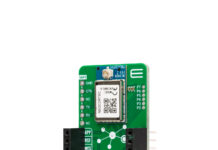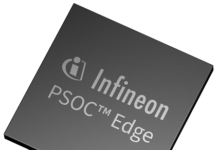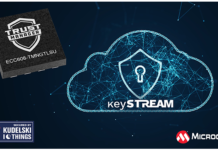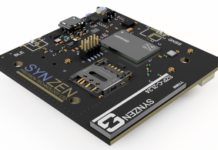The multinational tech giant is racing towards blockchain technology at a fast pace. Recently, the firm created a global Watson IoT headquarters in Munich where it studies and develops IoT protocols.
IoT technology will incorporate embedded chips and software in cars, machines, hospital equipment, and household appliances. IBM says it created the German headquarters because of the “escalating demand from customers who are looking to transform their operations using a combination of IoT and Artificial Intelligence.”
Distributed ledger technology tethered to IoT can create a more efficient relationship between chips and software, IBM says. The company has already been full steam ahead in research and development for its own blockchain protocol. Additionally, IBM recently tested a smart contract prototype with the Japan-based Mitsubishi UFJ.
The firm also believes 65 percent of major banks will be using distributed ledgers by 2019. The German IoT subsidiary considers blockchain to be a key element to building a distributed network of devices.
Harriet Green, Global Head of IBM’s Watson IoT business, said during the announcement:
“Germany is at the forefront of the Industry 4.0 initiative and by inviting our clients and partners to join us in Munich, we are opening up our talent and technologies to help deliver on the promise of IoT and establishing a global hotbed for collaborative innovation.
IoT and Blockchain Prototypes Already Created”
Back in January 2015, IBM revealed its ADEPT proof of concept. The project, in partnership with Samsung, tethers blockchain technology and IoT. The two companies tested smart contracts with Ethereum and low-cost solutions to automate devices. IoT framework has particular challenges though, which IBM believes blockchain tech could benefit. ADEPT looks at the ability to scale, trust, cost, authentication, and interoperability.
IBM’s report titled “Device Democracy” explained:
“The expected proliferation of hundreds of billions more places is at the threshold of a transformation sweeping across the electronics industry and many others. Yet, the dream of a smart, safe and efficient future is threatened by subscription fees, ubiquitous advertising and intrusive surveillance.— Our study shows that a low-cost, private-by-design “democracy of devices” will emerge that will enable new digital economies and create new value while offering consumers and enterprises fundamentally better products and user experiences.”
6,000 Clients Will Tap Into Watson IoT Services
The cognitive “IoT Collaboratories” in Munich will apply blockchain and IoT for its 6,000 clients worldwide. Those researchers, engineers and developers will look at integrating the IBM distributed ledger to transfer IoT data efficiently. Moreover, many other companies are joining forces to collaborate on R&D.
Businesses participating include the German automotive supplier Schaeffler, Dutch aircraft designer Aerialtronics, and Thomas Jefferson University Hospitals. With Watson IoT and IBM’s blockchain, these companies can reportedly share IoT data securely, and privately. IBM claims Watson clients will see “reduced costs and complexities” while doing business across this network.
Furthermore, Kouvola Innovation (Kinno), an economic development company based in Finland, has already used the Watson IoT blockchain implementation. While utilizing the technology Kinno is tracking, monitoring, container statuses and location. IBM says this “optimizes packing and transfer of shipments through shipping lanes.”
IBM is maintaining a serious position on blockchain, while other incumbents watch its lead. There’s no doubt IBM wants to continue its leading edge in this race. With its new capital injection, Germany’s IBM Watson will help lay the foundations between these two emerging technologies.
Source: https://news.bitcoin.com



















